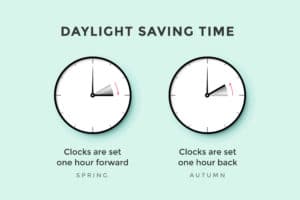Have you ever found yourself lying awake at night, your mind racing with thoughts of unfinished tasks, worries about tomorrow, or reflections on the day that’s passed? You’re not alone.
In our fast-paced world, finding moments of calm and reflection can feel like an impossible luxury.
But what if there was a simple practice that could not only quiet your mind but also improve your sleep, reduce stress, and set you up for more productive, positive days?
Enter bedtime journaling – a powerful tool that’s gaining recognition for its ability to transform our nights and, consequently, our lives.
Key Takeaways
- Bedtime journaling significantly reduces stress and anxiety, preparing your mind for restful sleep.
- Regular nightly writing improves sleep quality and decreases the time it takes to fall asleep.
- This practice enhances self-awareness, providing valuable insights into your thoughts and behaviors.
- Evening journaling serves as an effective tool for goal-setting and organization.
- Incorporating gratitude into your bedtime writing routine can cultivate a more positive mindset.
What is bedtime journaling?
Bedtime journaling is a reflective practice that involves writing down your thoughts, feelings, and experiences shortly before going to sleep. This nightly ritual can include recording the day’s events, expressing gratitude, setting intentions for tomorrow, or exploring personal insights.
By engaging in this process, you create a bridge between your busy day and the restful night ahead. It’s a moment of pause, a chance to clear your mind and prepare for rejuvenating sleep.
The science behind bedtime journaling
You might be wondering, “Is this just another wellness fad?” Far from it. Bedtime journaling isn’t just a feel-good practice; it’s backed by solid scientific research.
How nightly writing reduces stress
Picture this: You’re about to sleep, but your mind is like a browser with 100 tabs open. Sound familiar? This is where bedtime journaling comes to the rescue.
When you write down your thoughts and feelings, you’re essentially offloading your worries and concerns from your mind onto paper. This process, known as expressive writing, has been shown to lower cortisol levels – the hormone associated with stress.
A study published in the Journal of Experimental Psychology found that participants who spent just five minutes writing about their day experienced a significant reduction in anxiety and stress levels. It’s like hitting the ‘close all tabs’ button on your mental browser.
Pro tip: Create a “worry list” in your journal. You can externalize your concerns and create a plan to address them, reducing nighttime anxiety.
Enhanced sleep quality
If you’ve been chasing that elusive good night’s sleep, bedtime journaling might be your new best friend. Research consistently shows that this practice can help reduce sleep onset latency – that’s science-speak for “the time it takes to fall asleep.”
A fascinating study from Baylor University found that participants who wrote a to-do list for the upcoming day fell asleep significantly faster than those who wrote about completed tasks. It’s as if by writing down tomorrow’s tasks, you’re giving your brain permission to relax and switch off.
Improved self-awareness
Ever feel like you’re running on autopilot, reacting to life rather than living it intentionally? Bedtime journaling offers a unique opportunity to pause and reflect.
By taking time to review your day, explore your thoughts and feelings, and set intentions for the future, you’re engaging in a powerful form of introspection. It’s like becoming the anthropologist of your own life, observing patterns, recognizing triggers, and gaining insights into your emotional responses.
Pro tip: Try incorporating prompts that encourage deeper reflection, such as “What challenged me today?” or “How did I grow or learn?” These questions can unlock powerful insights.
Goal-setting in your bedtime journal
Have you ever noticed how the most successful people always seem to have a plan? There’s a reason for that. Using your bedtime journaling session to set goals and organize your thoughts for the next day can be incredibly powerful.
Research shows that the simple act of writing down your goals increases the likelihood of achieving them. It’s like planting seeds in your subconscious that grow while you sleep.
Cultivating gratitude and positive thinking
In a world that often seems filled with negativity, cultivating gratitude can be a revolutionary act. And your bedtime journal is the perfect place to start this revolution.
Studies consistently show that practicing gratitude can lead to increased happiness, improved relationships, and even better physical health. It’s like putting on a pair of glasses that help you see the good in your life more clearly.
Pro tip: Challenge yourself to write down three things you’re grateful for each night, no matter how small. This simple practice can shift your perspective in powerful ways.

Starting your nightly journal practice
Ready to dive into the world of bedtime journaling? Here’s how to get started.
Selecting the perfect bedtime journal
Your journal is your companion on this journey, so choose one that inspires you. Consider factors like size, paper quality, and design. Some people prefer lined pages, while others enjoy the freedom of blank ones.
The key is to find a journal that you’ll look forward to writing in each night. It should feel like a treat, not a chore.
Establishing a consistent routine
Consistency is the secret sauce of habit formation. Choose a specific time each night for your journaling practice and stick to it. It could be right after you brush your teeth, while you’re sitting in bed, or as part of a larger wind-down routine.
Pro tip: Set a reminder on your phone to journal at the same time each night. After a few weeks, it will become as natural as brushing your teeth.
Start small
Remember, you’re not writing the next great novel here. If you’re new to journaling, start with just five minutes of writing. You can gradually increase the duration as you become more comfortable with the practice.
Consistency trumps quantity every time. The goal is to make bedtime journaling a sustainable habit that you look forward to each night.
Get help with these bedtime journal questions
Staring at a blank page can be intimidating. That’s where prompts come in handy. Here are a few ideas to get you started:
- What were the highlights of my day?
- What am I grateful for today?
- What’s one thing I want to accomplish tomorrow?
- How am I feeling right now, and why?
- What’s something I learned today?
Pro tip: Keep a list of prompts in the back of your journal for those nights when inspiration is running low.
Experiment with different journaling techniques
Journaling isn’t one-size-fits-all. Experiment with different techniques to find what resonates with you. You might try:
- Stream of consciousness writing
- Bullet journaling
- Gratitude journaling
- Dream journaling
- Goal-setting and reflection
Remember, the most effective journaling practice is one that you enjoy and can maintain consistently.

Bedtime Journaling FAQs
How long should I spend on my bedtime journaling practice?
Start with 5-10 minutes and adjust based on what feels right for you. Consistency matters more than duration.
What if I fall asleep during my bedtime writing session?
That’s not a problem – it means you’re relaxed! If it happens often, try journaling a bit earlier in your routine.
Is paper or digital better for sleep journaling?
While both have benefits, paper is often recommended for bedtime journaling to avoid exposure to sleep-disrupting blue light from screens.
How do I maintain my nightly journaling habit if I miss a day?
Don’t worry about perfection. If you miss a night, simply pick up where you left off the next evening. Consistency over time is what matters.
Conclusion
Imagine waking up each morning feeling refreshed, focused, and ready to tackle the day. Picture yourself navigating life’s challenges with greater ease and self-awareness. Envision a life where gratitude and positivity are your default settings.
This isn’t just a dream. It’s the potential reality that bedtime journaling offers. By taking just a few minutes each night to reflect, express gratitude, and organize your thoughts, you’re investing in better sleep, reduced stress, and a more fulfilling life.
Remember, every great journey begins with a single step. Why not take that step tonight? Grab a pen and paper, find a cozy spot, and start your bedtime journaling journey. Your future self – well-rested, less stressed, and more self-aware – is waiting to thank you.











